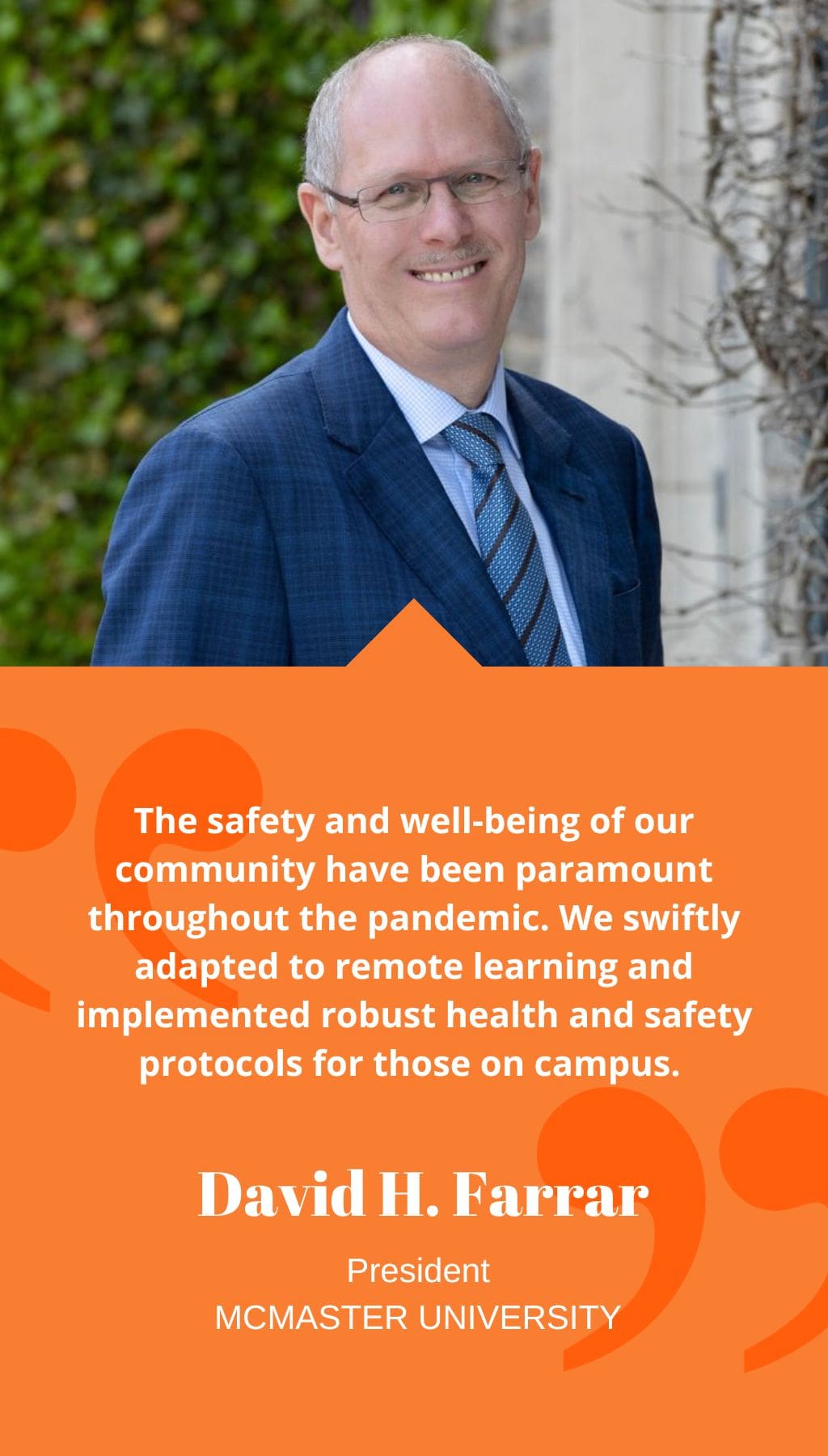
- Canada | 18 June 2023

Could you provide an overview of McMaster University’s significance within Canada’s higher education ecosystem and your vision for the institution?
Certainly. McMaster University has a storied history of academic excellence and innovation dating back to its founding in 1887. Our university is known for its pioneering spirit and commitment to research and education that advances society.
My vision for McMaster University is to continue pushing boundaries in research, teaching, and community engagement. We strive to provide our students with transformative learning experiences and produce research that addresses complex global challenges. Our goal is to be a beacon of knowledge and innovation, not only for our local community but also on the national and international stages.
McMaster University has earned recognition for its commitment to problem-based and experiential learning. Could you elaborate on the importance of these pedagogical approaches in preparing students for the challenges of the modern world?
Problem-based and experiential learning lie at the heart of our educational philosophy. We believe that students learn best when they are actively engaged, confronted with real-world challenges, and encouraged to think critically.
These approaches equip our graduates with essential skills such as problem-solving, adaptability, and critical thinking. In today’s rapidly evolving world, where complex problems demand innovative solutions, our students are well-prepared to make a meaningful impact.
McMaster University is renowned for its research contributions. Could you share some recent research achievements that have garnered attention and their potential implications for Canada and the world?
Absolutely. Our researchers are making remarkable strides in various fields. One area of note is health sciences. McMaster has been at the forefront of groundbreaking medical research, including clinical trials for COVID-19 vaccines, which have been pivotal in the global fight against the pandemic.
Moreover, our work in sustainability and environmental science has far-reaching implications. We are actively addressing climate change challenges and developing sustainable technologies that have the potential to benefit Canada and the world.
In light of the global challenges posed by the COVID-19 pandemic, what measures has McMaster University taken to ensure a safe and enriching learning environment for students and faculty?
The safety and well-being of our community have been paramount throughout the pandemic. We swiftly adapted to remote learning and implemented robust health and safety protocols for those on campus. As restrictions evolve, we remain vigilant in ensuring a safe environment.
Additionally, we have provided comprehensive mental health and support services to address the unique challenges faced by students and faculty during these times. Our commitment to their holistic well-being remains unwavering.
Looking ahead, what are McMaster University’s aspirations and strategies for the future, especially in an era of rapidly evolving education?
McMaster University is committed to innovation and adaptability. We plan to expand our research initiatives, collaborate across disciplines, and strengthen our connections with industry and community partners. Our goal is to continue producing graduates who are not only well-prepared for their careers but also have a deep sense of social responsibility.
Furthermore, we aim to create a dynamic and inclusive learning environment that leverages emerging technologies and pedagogical advancements. McMaster will remain a catalyst for change and progress in Canada’s education landscape.














